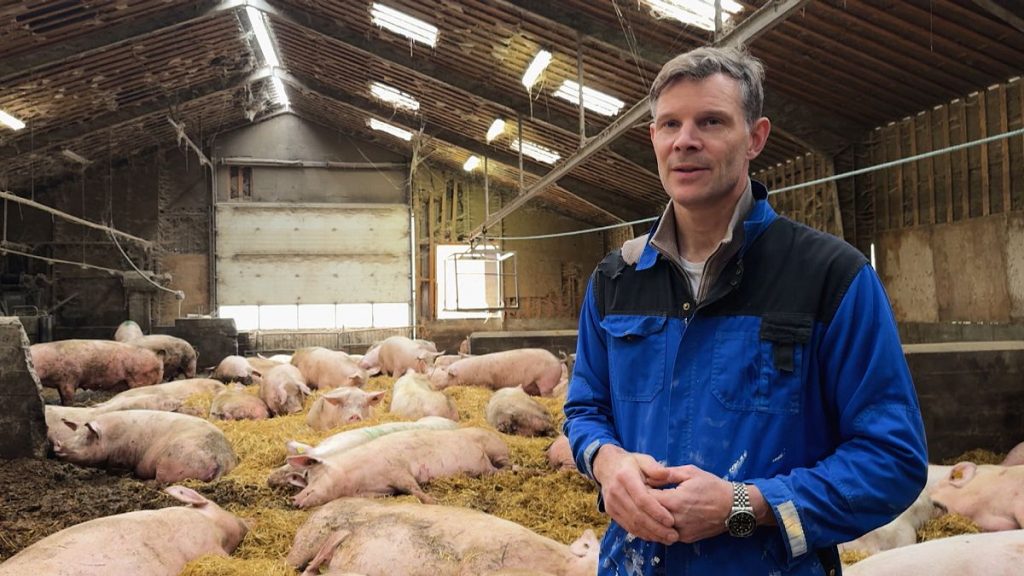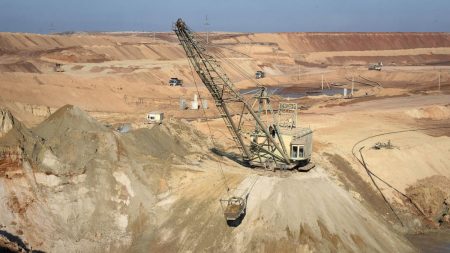The European Union’s ambitious goal of achieving carbon neutrality by 2050 faces a significant hurdle in the agricultural sector, a major contributor to greenhouse gas emissions. While the EU strives for consensus on a comprehensive strategy, Denmark has taken a bold, albeit controversial, step towards addressing agricultural emissions by proposing a carbon tax on livestock farming, slated for implementation in 2030. This move would make Denmark the first country in the world to impose such a tax, highlighting the urgency and complexity of decarbonizing the agricultural sector. This initiative has sparked debate about its potential efficacy, economic impact, and the broader implications for European agricultural policy.
Livestock farming, a cornerstone of European agriculture, accounts for a substantial 11.4% of the continent’s total greenhouse gas emissions. This significant contribution stems primarily from methane produced during the digestive process of ruminant animals like cattle and sheep, as well as from the management of manure from both cattle and pigs. Further adding to the environmental burden are emissions associated with the application of chemical fertilizers and the spreading of manure, both directly by farmers and through grazing. While France, Germany, and Poland currently hold the unenviable title of the largest agricultural greenhouse gas emitters within the EU, Denmark, a significant player in the export of dairy products and pork, follows closely behind. In Denmark, livestock farming ranks as the second largest source of greenhouse gas emissions, surpassed only by the energy sector, underscoring the need for targeted interventions.
The proposed carbon tax on livestock farming in Denmark, currently awaiting parliamentary approval, has generated significant controversy within the agricultural community. Farmers, concerned about the potential economic repercussions, argue that such a tax could hinder their competitiveness and potentially drive production to countries with less stringent environmental regulations. Peter Kiær, a pig farmer and chairman of the Danish Association for Sustainable Agriculture, exemplifies this perspective. He contends that the tax could discourage investments in green technologies, thereby hindering progress towards more sustainable farming practices. Kiær emphasizes that Danish farmers are committed to environmental stewardship and already strive to minimize pollution through the adoption of advanced technologies. He argues that a unilateral tax imposed solely on Danish farmers would place them at a disadvantage compared to their counterparts in other countries, potentially forcing them to cease production. Kiær suggests that for a carbon tax to be effective and avoid unintended consequences, it must be implemented uniformly across all European countries.
This sentiment is echoed by Jette Bredahl Jacobsen, Vice-Chair of the European Scientific Advisory Board on Climate Change, who advocates for a broader European approach to mitigating agricultural greenhouse gas emissions. Jacobsen stresses the need for pricing mechanisms that incentivize emission reductions within the agricultural sector. She further calls for a revision of the existing Common Agricultural Policy (CAP), arguing that current subsidies often disproportionately benefit greenhouse gas-intensive production methods, rather than supporting more sustainable and less carbon-intensive practices. This critique highlights the potential conflict between existing agricultural policies and the urgent need to transition towards a more environmentally friendly agricultural model.
The debate surrounding Denmark’s proposed carbon tax underscores the complex interplay between environmental goals, economic realities, and the need for coordinated policy action at the European level. While the intention behind the tax is laudable – aiming to curb emissions and promote sustainable practices – concerns remain regarding its potential impact on farmers’ livelihoods and the risk of production displacement to countries with laxer environmental regulations. This highlights the crucial role of a harmonized European strategy that ensures a level playing field for all member states while effectively addressing the environmental challenges posed by agriculture.
The European Commission’s recent decision to postpone the inclusion of specific agricultural measures within its 2040 climate objectives, following pressure from the farming lobby, further complicates the path towards a sustainable agricultural future. This postponement reflects the ongoing tension between the urgency of climate action and the political and economic considerations surrounding agricultural policy. The challenge for the EU is to forge a path that balances these competing interests, creating a framework that both supports farmers and incentivizes the adoption of sustainable practices essential for achieving the bloc’s ambitious climate goals. The Danish carbon tax proposal, while controversial, has ignited a crucial discussion about the future of European agriculture and the urgent need for transformative change in the sector.










